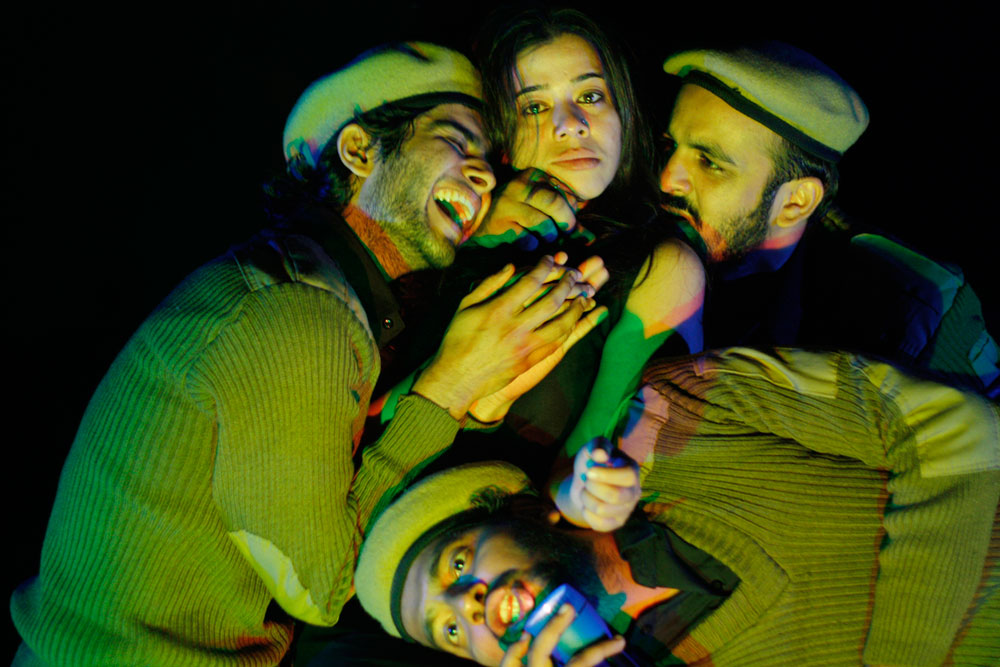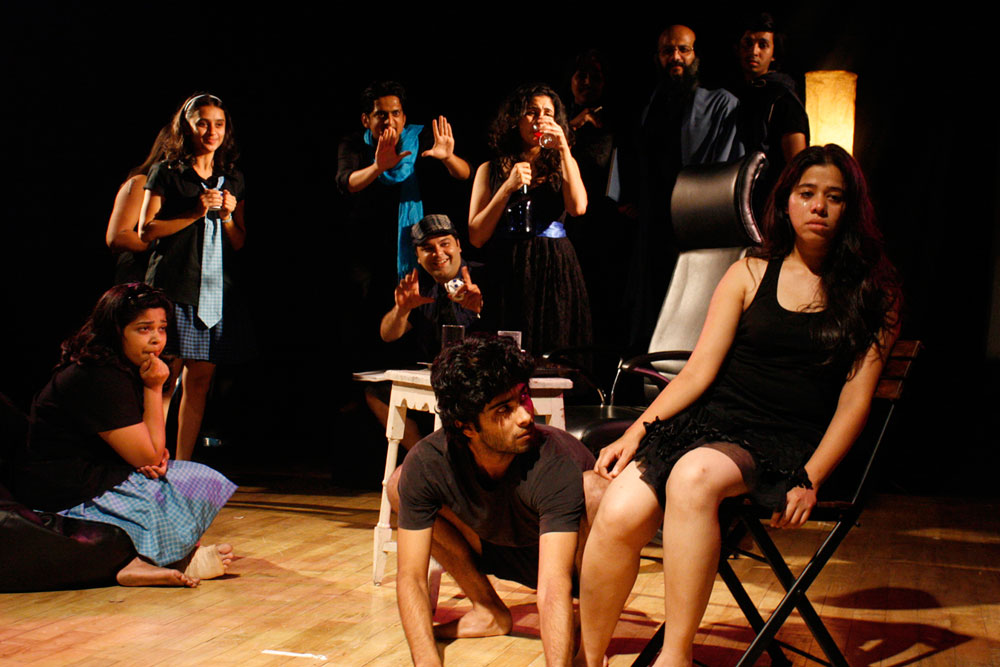Aasakta Kalamanch




Grant Period: Over two months
Aasakta Kalamanch is a group of contemporary theatre performers based in Pune. They have worked since 2004 with a commitment to support young performing artists to come together and experiment with theatrical forms and tackle new themes. This grant will support the group in facilitating four young directors to collaborate and devise a Marathi performance titled Teechi Satra Prakaraney.
In their early twenties, the directors Alok Rajwade, Nipun Dharmadhikar, Varun Narvekar and Sarang Saathe, exhibited immense potential in working with a strong visual language of performance. Their innovative work has created waves in the theatre community/festival circuits in and out of Maharashtra. The idea for creative collaboration originated when the four of them participated in a reading of Martin Crimp’s, Attempts on Her Life, organised by contemporary Marathi director, Mohit Takalkar. Crimp is hailed as one of the most exciting and unconventional British playwrights to emerge from the 1980s. Attempts on Her Life comprises of seventeen fragmented scenarios in which a variety of people talk about Anne, a ghost-like and polymorphous character, who possesses multiple identities. The characters in the play offer different views on the many lives of Anne, who we never see or hear. Though the play is set in a European context, it will stimulate the team to examine the perpetual unease and crisis of identity in contemporary Maharashtrian society.
Through a series of reading sessions, each director shall select different portions of the fragmented dramatic narrative to direct according to their individual aesthetic choices. Initial rehearsals with improvisations on the seventeen scenes will enable each director to zero in on a team of actors to work on the chosen scenes. Mohit Takalkar will facilitate critical thinking amongst the group. The four teams will work simultaneously with Pradip Vaidya (playwright for the production). Devised performance is uncommon in contemporary Maharashtrian theatre. It will offer a new challenge for the four directors who had previously directed only well-defined written scripts. What excites them about the production was that it would facilitate diverse voices to contribute to the development of a performance, with each providing “another perspective, another point of view and another mind.” The end result will be a unique mélange of varied yet interesting interpretations of the same common thread.
Teechi Satra Prakarney will premiere at Pune in November 2010.
